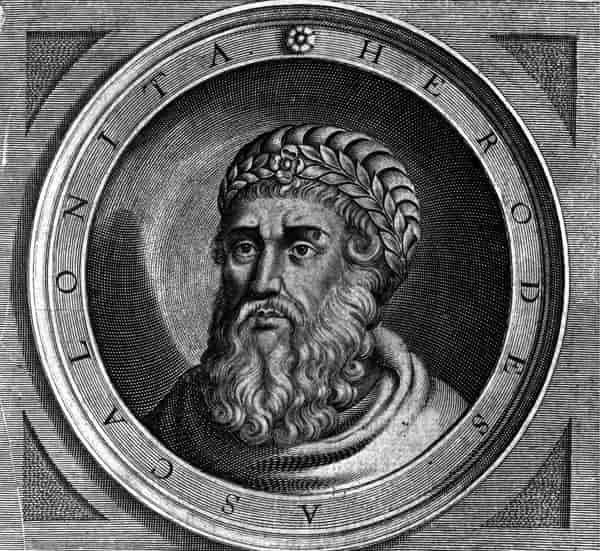Herod the Great was a king of Judea who lived during the first century BCE. He is known for his significant building projects, including the expansion of the Second Temple in Jerusalem, the construction of the port city of Caesarea, and the development of the fortress at Masada.
Herod the Great was appointed by the Roman Senate as the king of Judea in 40 BCE, and he ruled until his death in 4 BCE. He was known for his ruthless tactics in maintaining his power, including the execution of several family members and the massacre of infants in Bethlehem in an attempt to eliminate a potential rival, as described in the New Testament of the Bible.
Despite his reputation for cruelty, Herod was also a skilled administrator who was able to maintain stability and prosperity in Judea during his reign. His legacy continues to be felt in the region today, particularly in the architectural wonders he left behind.
Herods History Summary
Herod the Great was born in 73 BCE in Idumea, a region located in the southern part of what is now Israel. He was the son of Antipater, an important official in the Judean government who had been appointed by the Romans.
In 40 BCE, Herod was appointed by the Roman Senate as the king of Judea, following a period of political instability in the region. He initially faced significant opposition from the Jewish people, who viewed him as a foreigner and an illegitimate ruler. However, Herod was able to consolidate his power through a combination of military force and political maneuvering.
During his reign, Herod embarked on an ambitious program of building and construction, including the expansion of the Second Temple in Jerusalem, the development of the fortress at Masada, and the construction of the port city of Caesarea. He also established a network of fortresses and palaces throughout Judea, which helped to solidify his control over the region.
Despite his many accomplishments, Herod’s reign was marked by significant unrest and violence. He was known for his ruthlessness, and he executed several family members and potential rivals in an effort to maintain his grip on power. In addition, his policies of heavy taxation and forced labor led to widespread resentment among the Jewish population.
Following Herod’s death in 4 BCE, Judea was divided among his three surviving sons, who each ruled over different parts of the region. However, the period of stability that Herod had maintained during his reign quickly gave way to political and social upheaval, ultimately leading to the Jewish Revolt against Rome in 66 CE.




